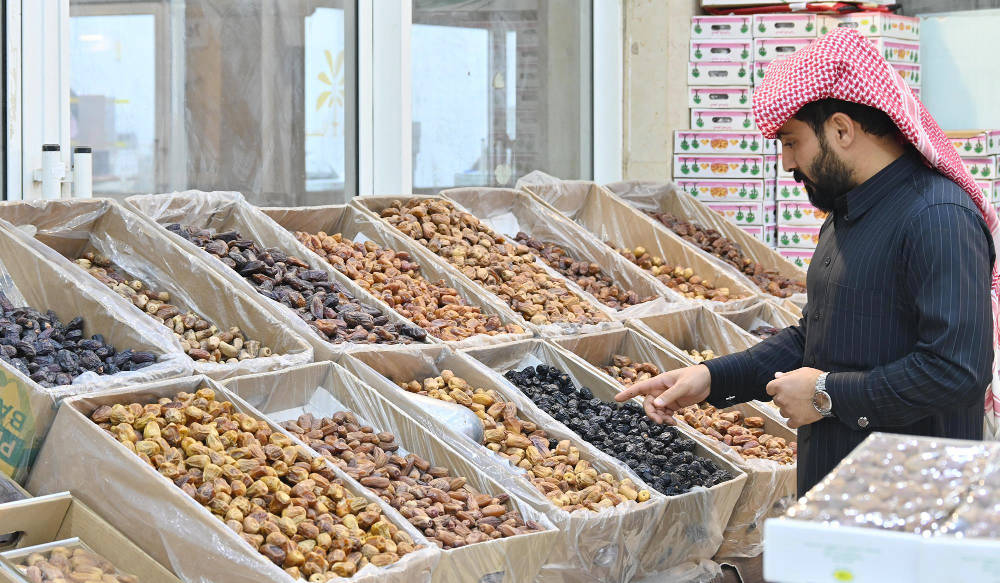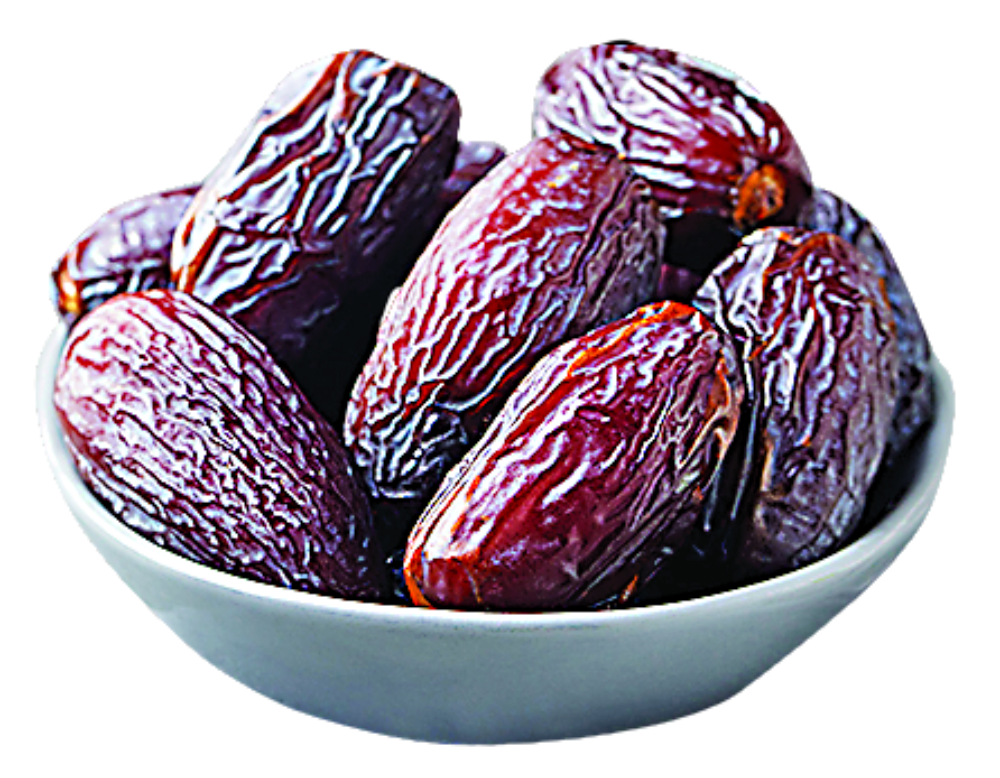RIYADH: Dates are an iconic symbol of Saudi Arabia. The fruit represents an integral part of the Kingdom’s hospitality as one is always offered dates and Arabic coffee at home, in the office and at event of all kinds.
It is no surprise that during the holy month of Ramadan, dates are a staple on the iftar table. With more than 200 varieties to choose from, dates come in a range of flavors, textures, colors and levels of sweetness.
Aside from consuming them on their own, dates are used in multiple ways in the kitchen: a filling for the popular and traditional mamool cookie, a natural sweetener for drinks and desserts and garnishing for salad, among other uses. Choosing the right variety will ensure a magical gastronomic experience.

A symbol of Saudi hospitality and an Iftar staple, over 200 varieties of dates are produced in Saudi Arabia and sold at date markets. (SPA)
The significance of dates is also tied to the belief that the Prophet Muhammad broke his fasts with the fruit, thus eating dates in the holy month of Ramadan is a tradition that Muslims have followed for centuries.
Khaled Al-Ramadan, a mechanical engineer, dedicates all of his free time to his date business, Kahraman Dates, in the Eastern Province. “I was born in Al-Ahsa and I have always had palm trees surrounding me. Out of love for agricultural history and my own hobby, I started my date business,” he said.
FASTFACT
The Ajwa date, considered one of the most expensive in the Kingdom, is produced mainly in Madinah, the second holy city in Saudi Arabia. Nicknamed the ‘holy date,’ the black or dark brown Ajwa has a distinct flavor profile.
Al-Ramadan added that he has become acquainted with many people in the date business, whose work he values. “Dates are available everywhere, even in grocery stores. There are dates that are marked at the lowest possible price, SR2-3 ($0.5) a kilo. But a person who can produce a beautiful and luxurious product deserves appreciation and support … we should buy from him and market his production.”

A symbol of Saudi hospitality and an Iftar staple, over 200 varieties of dates are produced in Saudi Arabia and sold at date markets. (Supplied)
Al-Ramadan’s favorite type of date is the Raziz date. The Raziz date is usually served with date molasses and sesame in a traditional dish named safsif. “Any authentic date expert would also tell you that the best date out there is the Raziz date. It has great nutritional value and flavor, even if it’s high in sugar,” he said.
Al-Ramadan told Arab News about four of the most popular Ramadan date varieties in the Kingdom.
Ajwa: The Ajwa date, considered one of the most expensive in the Kingdom, is produced mainly in Madinah, the second holy city in Saudi Arabia. Nicknamed the “holy date,” the black or dark brown Ajwa has a distinct flavor profile. It is slightly sweet and fruity with a prune-like texture and is rich in vitamins.
Khalas: Khalas dates are also considered one of the Kingdom’s premium varieties. It is a dark brown, oval-shaped date with a sweet butter-caramel flavor. “Khalas is most famously associated with the Eastern region in Saudi Arabia. Al-Ahsa tends to produce the highest quantity and quality of the Khalas date. You most certainly will find Khalas dates in every social gathering in the GCC, particularly in Saudi Arabia and UAE,” he said.
Sokari: Al-Ramadan recommends the sought-after Sokari date for a sweet caramel taste. They are considered a great source of fiber and suitable for people with heart conditions. “The word ‘Sokari’ sounds like ‘sugar’ in Arabic. It means ‘the sweet one,’ he said. The variety is popular in the region and the fruit is often referred to as ‘royal dates’,” Al-Ramadan added.
Segai: Segai are two-toned dates that hold different textures: One part of the date is soft and the other is dry and crunchy. Its taste is similar to brown sugar.



















